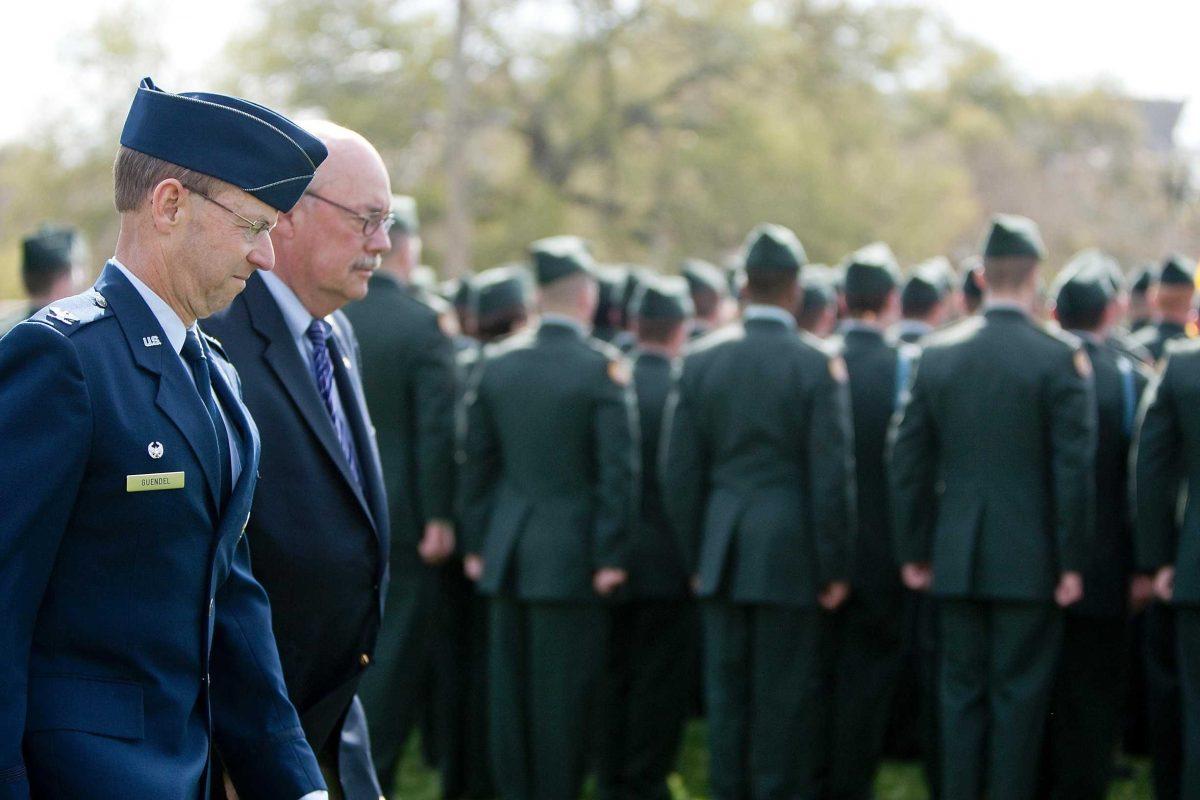A student veteran has written a bill to provide additional financial aid for student veterans, which he hopes a state legislator will pick up for discussion in the legislative session that begins March 12.
Interior design junior Austin Stukins, secretary of Student Veterans of LSU, said he handles legislative matters within the organization and hopes his bill, which seeks funding beyond the traditional five-year coverage, will gain the interest of state legislators.
Though legislators are already slated to debate changes to TOPS aid for veterans, Stukins said most veterans don’t take advantage of TOPS anyway.
Stukins said he thinks the proposed bill to adjust TOPS requirements for veterans is “a step in the right direction,” but he thinks more can be done to assist veterans wishing to return to school.
Many University programs, including the engineering and interior design programs, are estimated to take longer than four years to complete.
In order to receive TOPS benefits, Stukins said students in more extensive programs are forced to graduate sooner than planned.
“You’d have to cram five years of work into four,” he said. “That’s a big workload. The Yellow Ribbon Program is something I have devised and introduced to a few legislators, but it has not been introduced on the floor of the House or Senate.”
Stukins’ Yellow Ribbon Program would give the option for higher education institutions to work with Veterans Affairs to provide funding for additional tuition expenses.
Under Stukins’ bill, student veterans would receive funding for programs exceeding four years or further degrees, including graduate school. Once a veteran has exhausted the federal funding, the veteran could receive a grant through the program, which will provide funding for as many as 150 additional credit hours.
The program’s branch fund, which is a deficit neutral grant fund, will not impact tax payers since it is funded by tax-deductible donations.
As a stipulation, Stukins said students would sign an agreement with the state promising to work in Louisiana for the same amount of time after graduation.
“For example, if the veteran chooses to use the grant fund for an additional year, they will stay in the state for a year after graduation,” he said. “This way, students are giving back to the state and helping to aid state economic growth and productivity, while keeping the best and brightest minds in the state.”
Stukins estimated about 1,200 veterans statewide would take advantage of the program.
“We should want to do everything to give back to those who put it all on the line,” he said. “Joining the U.S. military is like writing a blank check to the U.S., and the amount is up to your own life. This bill would give veterans the ability to have a better life through pursuing higher education.”
Since TOPS officials are familiar with implementing scholarships, Stukins suggested they oversee the processing of these benefits should the bill be implemented.
Even though the program would be deficit neutral, Stukins said the main obstacle to putting his plan into action is finding a legislator who will support the initiative due to the immediate negative perception regarding spending in higher education.
“Some lawmakers are hesitant to introduce the legislation for fear that a committee would reject it without fully understanding that it could be done in a deficit-neutral fashion, or that the governor might veto it based on his cuts to higher education already,” he said.
Deficit-neutral funding would not generate any new taxes or increase spending on the state.
Instead, the grant would be voluntarily funded by tax-deductible donations.
Illinois, Montana and Texas have similar bills, and Stukins said Louisiana Sen. Valarie Hodges expressed interest in his bill in the past.
—-
Contact Kate Mabry at kmabry@lsureveille.com
Student suggests aid for veterans
March 6, 2012
Col. Fred Guendel, LSU’s commandant of cadets, left, and University Chancellor Michael Martin walk behind the LSU Army ROTC for inspection during the Chancellor’s Day Parade on March 18, 2010, on the Parade Ground.





